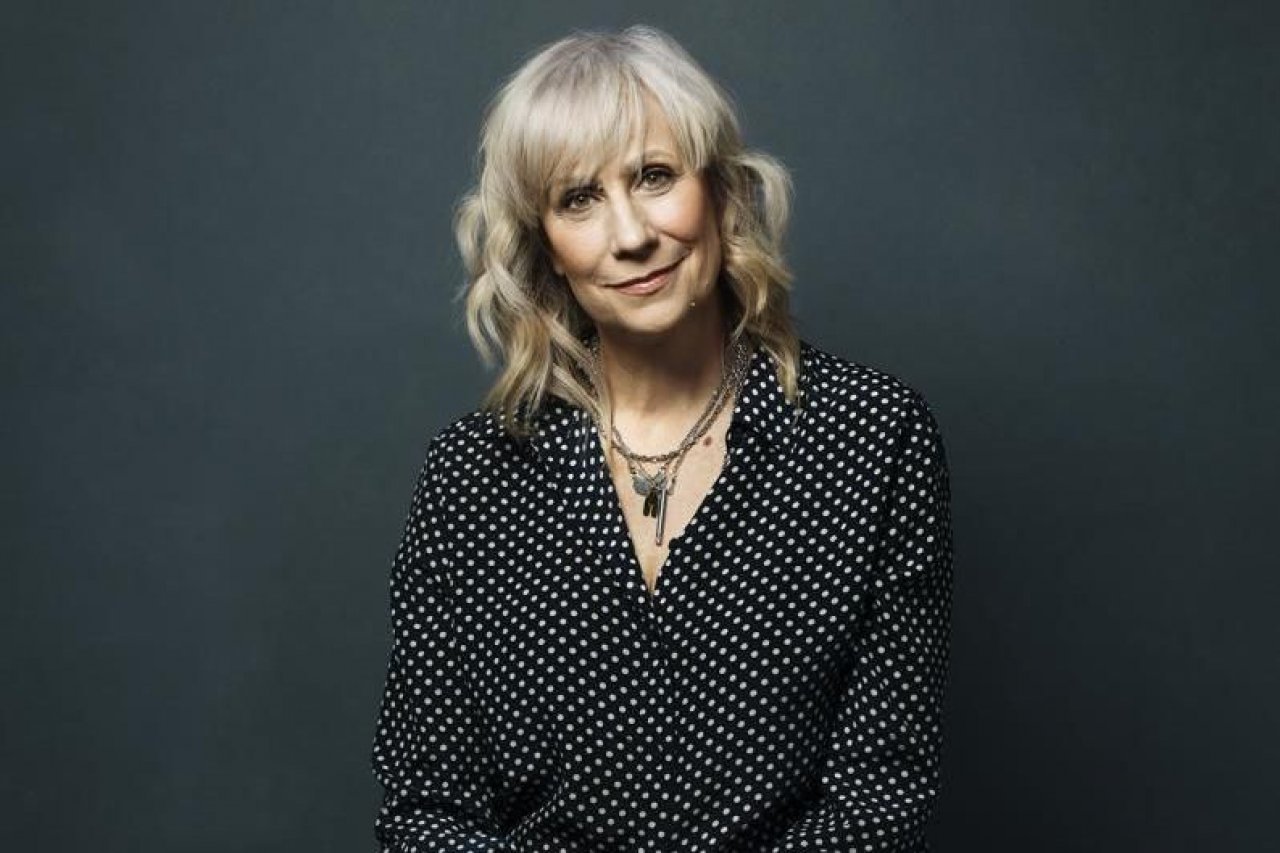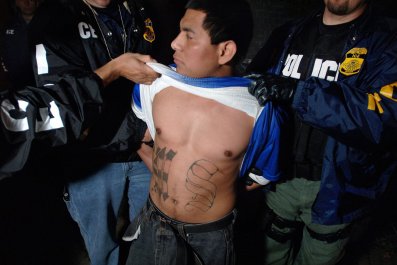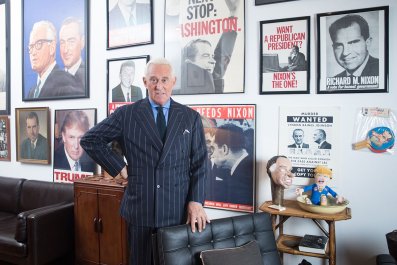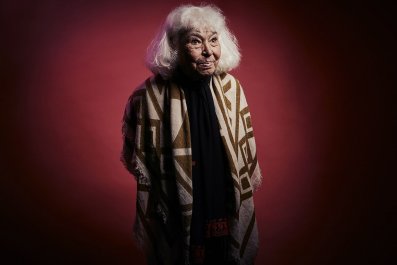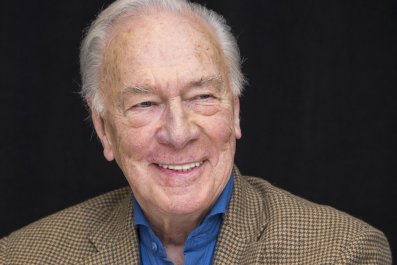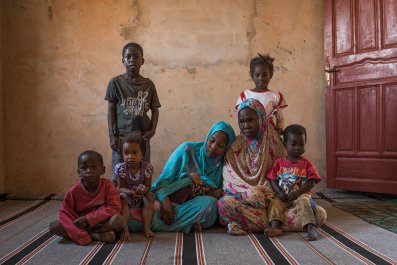In 1996, stand-up comedian Lizz Winstead sat down with producer Madeleine Smithberg to create a comedy show that parodied cable news. Comedy Central loved what they came back with and made Winstead head writer of The Daily Show. Winstead ran the writers' room and served as a correspondent for two years—until then-host Craig Kilborn told Esquire: "To be honest, Lizz does find me very attractive. If I wanted her to blow me, she would."
It was late 1997, and in those days, repercussions amounted to a one-week suspension for Kilborn. In 1998, Winstead left the show.
One year later, Jon Stewart took over and turned The Daily Show into a political comedy juggernaut. When he retired in 2015, Winstead got a cursory mention in the dozens of eulogies that ran online and in print. It was, she says, "a little bit of a bummer." On the other hand, if people dismiss or minimize her participation in the show, Winstead has "no problem saying, 'Yeah, that foundation that Trevor and Jon and everybody built out on? The one that was so malleable and sturdy that they could do that? I made that.'"
Winstead went on to co-found Air America in 2003; the progressive radio network launched Rachel Maddow and the podcast career of Marc Maron. She was fired two years later by a new president (a man), who told her "comedy is not a good tool for social change." (The company filed for bankruptcy and folded in 2010.)
Winstead has spent the years since actively disproving that attitude with her own comedy and the nonprofit reproductive rights organization Lady Parts Justice League. She and her team of writers engage audiences via funny videos and live shows, weaving in the latest news on abortion laws and clinics. They also visit clinics across the country, "doing everything from replanting their gardens [to] throwing them parties and taking them out to dinner," says Winstead. "We did a complete overhaul on a reception area of a clinic."
Currently, Lady Parts' team of 12 works out of a shared office space in Brooklyn. Winstead shows me her desk, crammed into a tiny room with two others. The top is a muddle of papers, hot sauce, Coffee-mate and uterus paraphernalia—including a stuffed puppet (her name is Eunice) and a uterus-shaped neon light that emits a soft, pink glow. She regrets the lack of old takeout containers, which would give me a more complete picture of her work habits.
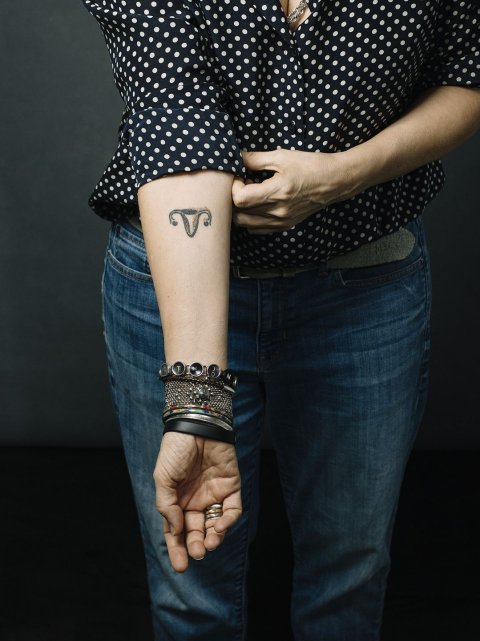
The group is gearing up for its second annual "Vagical Mystery Tour," an eight-week, eight-city road show, featuring comics, performers and activists. After the show, a talk-back with local abortion providers and activists is designed to inform and inspire the audience to get involved. After years of incorporating politics into her comedy, this, says the 56-year-old Winstead, was the logical next step.
Born to conservative Catholic parents in Minnesota, Winstead honed her observational comedy at local clubs. In 1987, she got national exposure via HBO's comedy special Women of the Night , which gave her the opportunity to move to New York City some three years later. In her 2012 memoir, Lizz Free or Die , Winstead described being on a terrible blind date at a sports bar. A piece on the first Gulf War was on playing on TV, and something clicked. "I looked at CNN reporting on that war like it was some kind of weird-ass video game," she says now. "I felt like they were trying to sell me on war, instead of report on one."
The Daily Show was all about mocking news coverage, and her Air America show, Unfiltered, which debuted in 2004, had host Rachel Maddow offering witty commentary on news overlooked by the mainstream. In 2010, when states started passing anti-abortion laws, the news became more personal: Winstead had had an abortion when she was 17. "Reading the news, I had this sinking feeling," she says. "I had an abortion. I didn't think about it again. Lucky me, I got to pursue what I got to pursue because I did that. If abortion is part of the path to someone else's potential, I need to defend that. Otherwise, I'm a hypocrite."
Even for a seasoned comedian known for embracing controversial material, she had to overcome the stigma around the a-word. "I said, 'Of course nobody likes abortion.' Then I was like, Wait, I actually do like abortion. I'm glad that it exists. And I need to talk about it in normalizing terms, because it hasn't defined me. "
At a comedy show I attended in Brooklyn, she killed with the line: "People ask me, how many abortions have you had? I say, 'I don't know. I don't keep receipts.'" Often, she does readings of her essay "All Knocked Up," about her experience getting pregnant the first time she had sex with her high school boyfriend. "I was Catholic. If I used birth control and had sex, I'd be committing two sins!"
But Winstead began to feel that her stand-up wasn't enough. "People would come up to me and say, 'Oh my god, that's terrible. What can I do?' I was like, 'I don't know. I'm just a comedian!'"
Slowly, Lady Parts Justice League took shape—first in the form of a humorous, informative YouTube video, then, in 2016, as a bona fide 501(c)(3) nonprofit with funding and employees. (The name is a nod to Michigan state Representative Lisa Brown, who was barred from speaking after uttering the word vagina —rather than a cutesy euphemism—on the House floor.) When President Donald Trump took office in January, Winstead knew she had to take her message deeper into America, with a national tour.
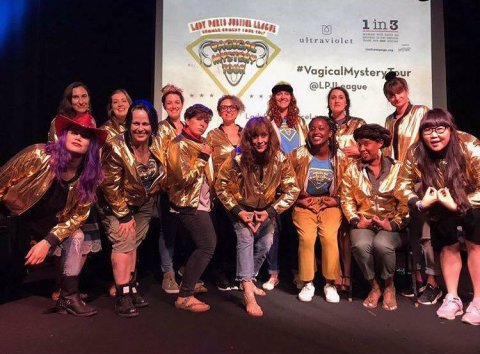
This summer's Vagical Mystery Tour, which kicked off June 12, does not include Los Angeles or New York. Lady Parts focuses on places where abortion rights are bleak, local activists are tired, and every vote in the Electoral College matters: Bethlehem, Pennsylvania; Charleston, West Virginia; Columbus, Ohio; Nashville, Tennessee; Detroit; South Bend, Indiana; Minneapolis; and Milwaukee. Winstead meticulously researches the local politics of each city. For example, in Columbus, she'll include a joke about John Kasich, Ohio's governor. "Everyone has a local creep," she says. "Or five."
The only thing she misses about the entertainment industry is the money. It would be nice, she admits, if people wrote the kinds of checks for nonprofits that they do for TV shows. But there are perks: "No network notes," she says. "No one saying, 'Are men gonna like this?!'"
She's grateful for the #MeToo and Time's Up movements but a little wistful. "In those early days of stand-up, women rarely got to work together and share our experiences. There wasn't an internet where we could say, 'Hey, that club owner in X town? Watch out for him,'" says Winstead, who insists she's not bitter about her untimely exit from The Daily Show. After all, she says, "It launched a big, fat permission slip to take on the world in new ways. There's an audience for what I do because that show exists."



